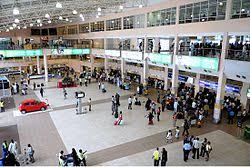The Returnee Wave: How a New Generation Is Rewriting the Story of Migration

The Returnee Wave
The dominant migration story in Africa for decades has been linear, leave home, build a life abroad, send money back, return only for Christmas or never at all, Migration was imagined as a one–way journey toward better economic opportunities and improved social mobility, Families celebrated those who “made it out” and measured progress by distance, Airports became symbols of escape, and departure was seen as success.
In recent years, the narrative has shifted, A new demographic educated, globally exposed, digitally connected, and sharply observant has begun to move in the opposite direction, Networks such as African Diaspora Network and Migration Policy Institute have observed a noticeable movement of Africans choosing to return, These are the returnees, They are not coming back because they failed abroad, They are returning because the value of home has changed, What they once ran from has evolved, and what they once pursued has become less certain or less meaningful, Their return is not sentimental but strategic.
This movement is subtle, It shows up when someone who grew up in Lagos but studied in London comes home and starts a small creative studio in Surulere, using ideas they picked up abroad but shaping them to fit local reality, It is in women who learned baking abroad and now run home-based cake businesses in Ibadan, mixing foreign recipes with Nigerian flavors because customers still want cakes that are “not too sweet.”
It appears in accents that switch mid-sentence, Someone says “Bro, that thing was mad stressful” but also says “Omo, I tire,” depending on who they are speaking to, The returnee wave is not about abandoning one place for another, It is not even about “coming back home” in a dramatic sense, It is more like carrying all the places one has lived inside them and letting that mixture show up in how they work, speak, dress, build, and dream, The returnee wave is not a reversal, It is an expansion of identity.

The Meaning of Opportunity Has Shifted
Earlier waves of migration saw the global North as the clearest route to stability, a place where systems were structured, expectations were clear, and upward movement felt attainable, Africa, in contrast, was perceived as unpredictable and constrained, Many who left believed the future existed elsewhere and survival at home meant shrinking oneself to fit limited spaces, Leaving was an act of ambition.
However, life abroad has also changed, Cities such as London, Toronto, and New York have become increasingly expensive and density-driven, Social mobility is no longer guaranteed even with degrees and professional experience, Many migrants abroad now find themselves working to maintain survival instead of building the lives they once imagined, The dream did not vanish, but its clarity did.
Meanwhile, many African cities have undergone significant cultural and economic transformation, Tech ecosystems such as AfriLabs and innovation networks across Lagos, Nairobi, Kigali, and Accra have grown, Creative industries have flourished, and youth-driven cultural shifts have redefined what innovation looks like, The question is no longer “Why leave?” but “What can be built here?” The return is not nostalgic, It is grounded in a recalibrated understanding of what opportunity means.

Returning With Strategy, Not Sentiment
The returnee wave is not guided by patriotism or cultural guilt, Those returning are fully aware of infrastructural inconsistencies, bureaucratic networks that require negotiation, unstable currencies, and unpredictable systems, They are not blind to the challenges of home; they simply weigh them against the constraints they experienced abroad and find a different type of possibility emerging.
What defines this movement is clarity, ln Abroad, many returnees felt like one among thousands skilled, but indistinguishable, At home, their knowledge, specialization, and perspective fill visible gaps, Their presence matters differently, and the results of their work are tangible, The return is not an escape from difficulty but a strategic movement toward relevance.
This is not an emotional embrace of heritage, It is a shift in power, To return is to recognize that influence, scale, and authorship may be more accessible at home, Communities such as Homecoming Revolution highlight how returnees are not coming back to fit into what existed before but to participate in shaping what is emerging,
Diaspora Capital as Cultural and Economic Technology
Returnees bring something intangible yet powerful, the ability to translate between worlds, Many have worked in environments where documentation, accountability, iterative design, and collaborative leadership are the norm, They have seen models of project execution that are systematic rather than improvisational, When they return, they bring these methods quietly embedded in how they organize work, structure ideas, and execute plans.
Diaspora capital is not only professional but cultural fluency, Returnees know how to speak to investors in the language of scalability and to local communities in the language of lived reality, They understand that innovation is not a foreign concept but a reinterpretation of necessity, They do not attempt to replicate London or Amsterdam. They create hybrids that reflect where they have been and where they are standing now.
Diaspora Connect
Stay Connected to Home
From Lagos to London, Accra to Atlanta - We Cover It All.
This merging of insight is not loud, It shows in workflow systems, in how teams are built, in how ambition is articulated, It is subtle, precise, and cumulative, Over time, it changes what people believe is not possible.
Where the Wave Builds Visibility
The returnee wave is particularly visible in technology, where software engineers, product designers, and financial analysts are building digital systems that respond directly to local conditions, The fintech boom in Lagos and Nairobi is driven by people who understand both the frustrations of daily life and the global frameworks for solving them, They build not from theory but from memory.
In creative sectors, the shift is equally pronounced, Musicians distribute globally without leaving their bedrooms, Fashion designers use traditional weaving techniques to produce futuristic silhouettes, Filmmakers document everyday life with tonal complexity rather than spectacle,African creativity is no longer positioned as derivative or exotic, It is positioned as contemporary.
Hospitality, urban development, and cultural preservation also reflect this wave, Boutique hotels reinterpret community rather than replicate Western luxury,Urban project labs explore how to design cities that reflect climate, culture, and history, Archives and cultural research spaces are documenting identities previously treated as peripheral.
The Friction of Return and the New Shape of Migration
Coming back home is rarely straightforward, Many returnees expect to simply pick up where they left off, but the country they remember and the one they step back into are not the same, Work moves at a different pace, Conversations rely on unspoken rules, and relationships require a kind of reading between the lines that no one explains, The returnee quickly realizes that familiarity does not automatically equal belonging, They recognize places and faces, yet still feel slightly out of place, as though they are watching themselves return rather than actually returning.
Home also holds memories that no longer fit, The returnee remembers how things used to be, but life has continued in their absence, Friends have changed, the city has grown or shifted, and family routines have reorganized around different rhythms, Meanwhile, the returnee has also changed, They have seen new systems, new ways of solving problems, new expectations of how things should work, So they find themselves in a middle space not fully “foreign,” but not fully “local” anymore, This in–between identity becomes part of their everyday life.
Migration no longer looks like a one–way journey, It isn’t simply leave forever or return permanently, It is movement that loops, shifts, pauses, and restarts, Someone may leave to learn, come back to build, leave again to gather resources, and return once more with new experience, Home becomes a base, a place that remains part of one’s identity, even if one’s life moves between multiple cities or countries, The momentum is not about escape, It is about navigating where one’s work, ideas, and future feel most possible.
This moment matters because it signals a quiet shift in how African futures are shaped, Young people who have seen how systems work elsewhere are not just coming back with stories, They are coming back with methods, networks, and new expectations of what can be built, They are not attempting to recreate London, Toronto, or Berlin, They are shaping Lagos, Nairobi, Accra, Kigali, and Johannesburg in ways that reflect their layered experiences, To them, Home is not where the journey ends, Home is where the journey expands.
Recommended Articles
There are no posts under this category.You may also like...
When Sacred Calendars Align: What a Rare Religious Overlap Can Teach Us

As Lent, Ramadan, and the Lunar calendar converge in February 2026, this short piece explores religious tolerance, commu...
Arsenal Under Fire: Arteta Defiantly Rejects 'Bottlers' Label Amid Title Race Nerves!

Mikel Arteta vehemently denies accusations of Arsenal being "bottlers" following a stumble against Wolves, which handed ...
Sensational Transfer Buzz: Casemiro Linked with Messi or Ronaldo Reunion Post-Man Utd Exit!

The latest transfer window sees major shifts as Manchester United's Casemiro draws interest from Inter Miami and Al Nass...
WBD Deal Heats Up: Netflix Co-CEO Fights for Takeover Amid DOJ Approval Claims!

Netflix co-CEO Ted Sarandos is vigorously advocating for the company's $83 billion acquisition of Warner Bros. Discovery...
KPop Demon Hunters' Stars and Songwriters Celebrate Lunar New Year Success!

Brooks Brothers and Gold House celebrated Lunar New Year with a celebrity-filled dinner in Beverly Hills, featuring rema...
Life-Saving Breakthrough: New US-Backed HIV Injection to Reach Thousands in Zimbabwe

The United States is backing a new twice-yearly HIV prevention injection, lenacapavir (LEN), for 271,000 people in Zimba...
OpenAI's Moral Crossroads: Nearly Tipped Off Police About School Shooter Threat Months Ago
ChatGPT-maker OpenAI disclosed it had identified Jesse Van Rootselaar's account for violent activities last year, prior ...
MTN Nigeria's Market Soars: Stock Hits Record High Post $6.2B Deal

MTN Nigeria's shares surged to a record high following MTN Group's $6.2 billion acquisition of IHS Towers. This strategi...
